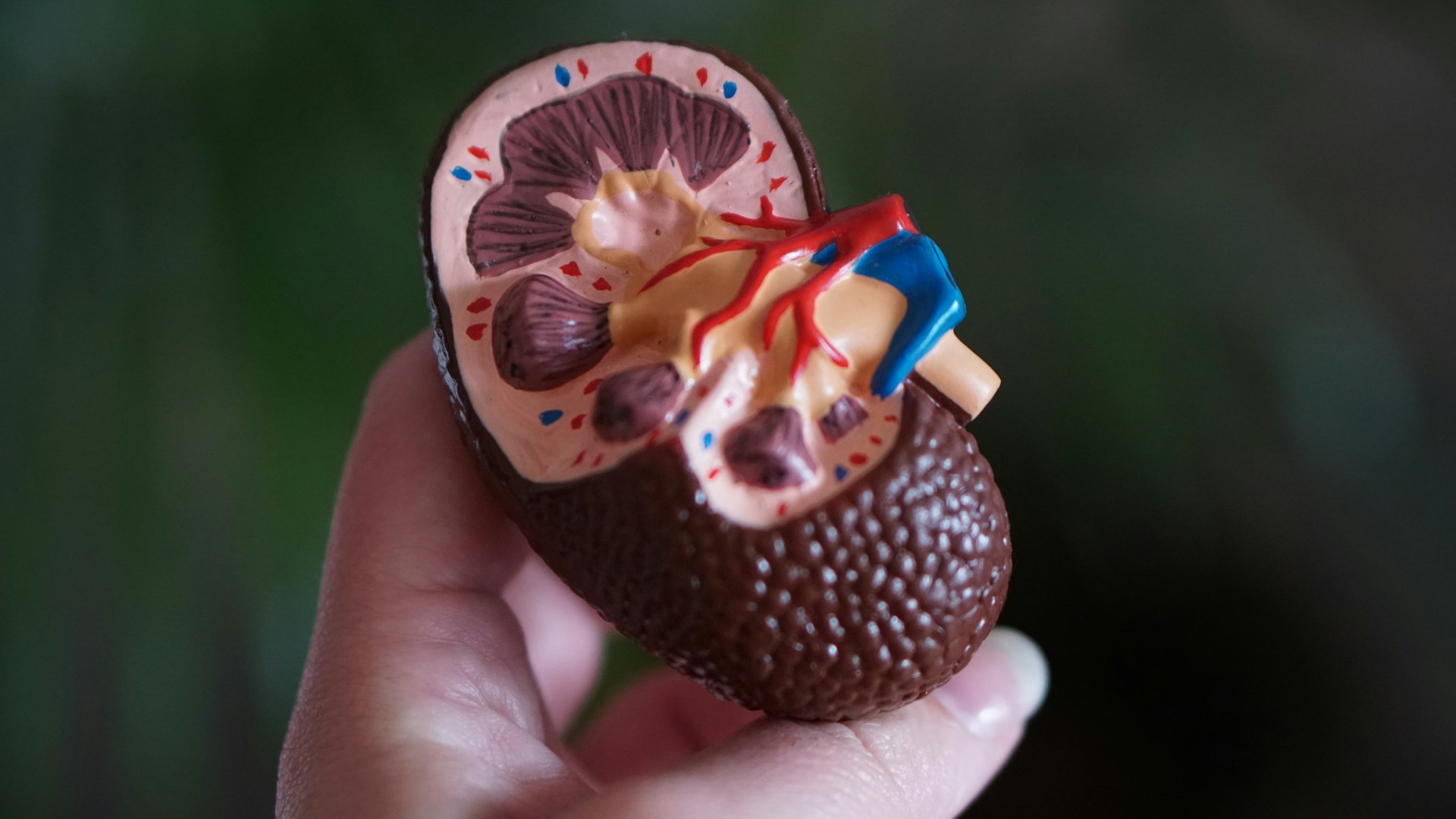Do you have focal segmental glomerulosclerosis (FSGS)? Or do you know someone who does? If so, you may have many questions about this condition, such as:
- What is FSGS and how does it affect the kidneys?
- What are the causes and types of FSGS?
- What are the symptoms and complications of FSGS?
- How is FSGS diagnosed and treated?
- What are the latest trends and updates on FSGS research?
In this article, we will answer these questions and provide you with some useful information and resources to help you understand and manage FSGS.
What is FSGS and how does it affect the kidneys?
FSGS is a chronic kidney disease that causes scarring and damage to the glomeruli, the small parts of the kidneys that filter waste and excess fluid from the blood. The glomeruli are made up of tiny blood vessels and specialized cells called podocytes, which form a barrier that prevents large molecules, such as proteins, from passing through. When the podocytes are injured, they allow the protein to leak into the urine, called proteinuria. Proteinuria can cause swelling, high cholesterol, low immunity, and other problems. Over time, FSGS can lead to kidney failure, which means the kidneys can no longer filter the blood and maintain the body’s balance of fluids and electrolytes. Kidney failure requires dialysis or a kidney transplant to survive.
What are the causes and types of FSGS?
FSGS can be classified into different types, depending on the cause of the disease. Some of the common types are:
- Primary FSGS: This is when the cause of FSGS is unknown or idiopathic. It may be related to genetic factors, immune system problems, or viral infections. Primary FSGS is the most common type, accounting for about 80% of cases.
- Secondary FSGS: This is when FSGS is caused by another condition, such as diabetes, obesity, HIV, sickle cell disease, or other kidney diseases. Treating the underlying condition may help slow down the progression of FSGS. Secondary FSGS is less common, accounting for about 20% of cases.
- Genetic FSGS: This is when FSGS is inherited from one or both parents. It is also called familial FSGS. It is caused by mutations in genes that affect the structure or function of the podocytes. Genetic FSGS is rare, accounting for less than 5% of cases.
- Unknown FSGS: This is when the cause of FSGS cannot be determined despite extensive testing and evaluation.
What are the symptoms and complications of FSGS?
The symptoms of FSGS vary from person to person, depending on the severity and type of the disease. Some of the common symptoms are:
- Proteinuria: This is the presence of protein in the urine, which can make the urine foamy or frothy. Proteinuria can cause fluid retention, swelling, weight gain, and high blood pressure.
- Nephrotic syndrome: This is a condition that occurs when proteinuria is severe and leads to low levels of protein in the blood, high levels of cholesterol and triglycerides, and increased risk of infections and blood clots.
- Kidney failure: This is when the kidneys lose their ability to filter the blood and maintain the body’s balance of fluids and electrolytes. Kidney failure can cause symptoms such as fatigue, nausea, vomiting, itching, muscle cramps, and changes in urine output and color.
Some of the possible complications of FSGS are:
- Anemia: This is a condition that occurs when the red blood cells are low in number or hemoglobin, the protein that carries oxygen. Anemia can cause weakness, shortness of breath, and pale skin.
- Bone disease: This is a condition that occurs when the bones become weak and brittle due to low levels of calcium and phosphorus, which are regulated by the kidneys. Bone disease can cause pain, fractures, and deformities.
- Cardiovascular disease: This is a condition that affects the heart and blood vessels, such as coronary artery disease, heart failure, and stroke. Cardiovascular disease can be caused by high blood pressure, high cholesterol, and inflammation, which are common in FSGS.
- Infection: This is a condition that occurs when the body is invaded by harmful microorganisms, such as bacteria, viruses, or fungi. Infection can be caused by low immunity, which is common in FSGS, especially in nephrotic syndrome.
- Thrombosis: This is a condition that occurs when a blood clot forms in a blood vessel, blocking the blood flow. Thrombosis can be caused by high levels of fibrinogen and other clotting factors, which are common in FSGS, especially in nephrotic syndrome.
How is FSGS diagnosed and treated?
FSGS is diagnosed by a kidney biopsy, which is a procedure that involves taking a small sample of kidney tissue and examining it under a microscope. The biopsy can show the presence and extent of scar tissue on the glomeruli, as well as the type of FSGS. Other tests that may be done to diagnose FSGS include:
- Urine tests: These can measure the amount and type of protein in the urine, as well as the presence of blood, infection, or inflammation.
- Blood tests: These can measure the levels of creatinine, urea, albumin, cholesterol, and other substances that reflect the kidney function and the degree of protein loss.
- Imaging tests: These can show the size and shape of the kidneys, as well as any abnormalities or blockages in the urinary tract.
- Genetic tests: These can identify the mutations that cause genetic FSGS.
FSGS is treated with medications, diet and lifestyle changes, dialysis, or kidney transplants. The treatment options depend on the type and cause of FSGS, as well as the individual’s age, health, and preferences. Some of the common treatments are:
- Medications: These include steroids and other immunosuppressive drugs that can reduce the inflammation and scarring of the glomeruli, as well as drugs that can lower blood pressure, cholesterol, and proteinuria. Some of the medications that may be used are prednisone, cyclosporine, tacrolimus, mycophenolate, rituximab, and angiotensin-converting enzyme inhibitors (ACEIs) or angiotensin receptor blockers (ARBs).
- Diet and lifestyle changes: These include limiting the intake of salt, protein, fat, and cholesterol, maintaining a healthy weight, exercising regularly, quitting smoking, and avoiding alcohol and drugs. These changes can help control blood pressure, cholesterol, and fluid retention, as well as improve overall health and well-being.
- Dialysis: This is a treatment that filters the blood using a machine or a membrane when the kidneys are unable to do so. Dialysis can remove waste, excess fluid, and toxins from the body, as well as restore the balance of electrolytes and pH. There are two types of dialysis: hemodialysis and peritoneal dialysis. Hemodialysis uses a machine that pumps the blood through a filter, while peritoneal dialysis uses the lining of the abdomen as a filter.
- Kidney transplant: This is a surgery that replaces the damaged kidney with a healthy one from a donor, either living or deceased. Kidney transplant can restore normal kidney function and improve the quality of life, but it also involves the risk of rejection, infection, and side effects from the anti-rejection drugs.
What are the latest trends and updates on FSGS research?
FSGS is a complex and challenging disease that requires more research and innovation to find better ways to diagnose, treat, and prevent it. Some of the recent trends and updates on FSGS research are:
- New drugs and therapies: Several new drugs and therapies are being developed and tested for FSGS, such as sparsentan, a dual-action drug that blocks both angiotensin and endothelin receptors; voclosporin, a novel calcineurin inhibitor that enhances the efficacy of steroids; and abatacept, a biologic agent that targets the B7-1 molecule on podocytes. These drugs and therapies aim to improve the response rate, reduce the relapse rate, and preserve kidney function in FSGS patients
- Biomarkers and predictors: Several biomarkers and predictors are being identified and validated for FSGS, such as suPAR, a soluble form of urokinase plasminogen activator receptor that is elevated in primary FSGS; APOL1, a gene variant that is associated with increased risk of FSGS and other kidney diseases in African Americans; and podocin, a protein that is expressed in podocytes and can be detected in urine. These biomarkers and predictors can help diagnose, classify, monitor, and prognosticate FSGS patients, as well as guide treatment decisions.
- Clinical trials and registries: Several clinical trials and registries are being conducted and established for FSGS, such as the Cure Glomerulonephropathy (CureGN) Network, a multicenter consortium that aims to enroll and follow 2,400 patients with FSGS and other glomerular diseases; the Nephrotic Syndrome Study Network (NEPTUNE), a collaborative network that collects and analyzes clinical, histologic, genomic, and biomarker data from FSGS and other nephrotic syndrome patients; and the FSGS Clinical Trial Consortium (FSGS-CTC), a group of academic centers that conducts randomized controlled trials of new drugs and therapies for FSGS. These trials and registries can provide valuable insights and evidence for improving the care and outcomes of FSGS patients.
Conclusion
FSGS is a kidney disease that causes scarring and damage to the glomeruli, the small parts of the kidneys that filter waste from the blood. FSGS can cause protein loss in the urine, which can lead to swelling, high cholesterol, low immunity, and other problems. FSGS can progress to kidney failure, which requires dialysis or a kidney transplant. FSGS can be caused by various factors, such as genetic mutations, immune system problems, or other conditions. FSGS is diagnosed by a kidney biopsy, and treated with medications, diet and lifestyle changes, dialysis, or kidney transplant. FSGS is a complex and challenging disease that requires more research and innovation to find better ways to diagnose, treat, and prevent it.
Check out more articles!








